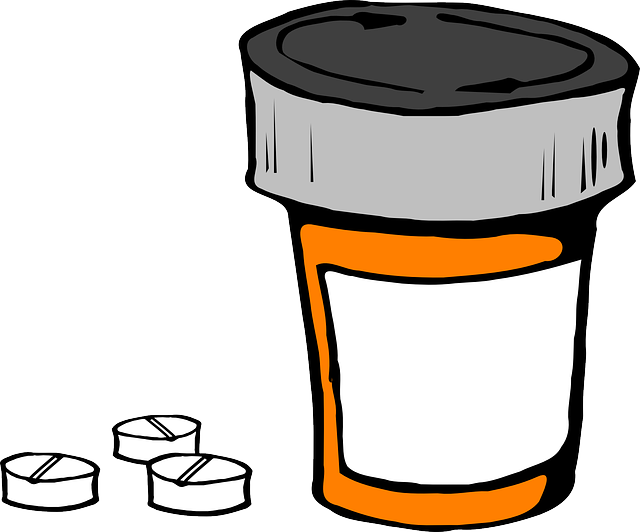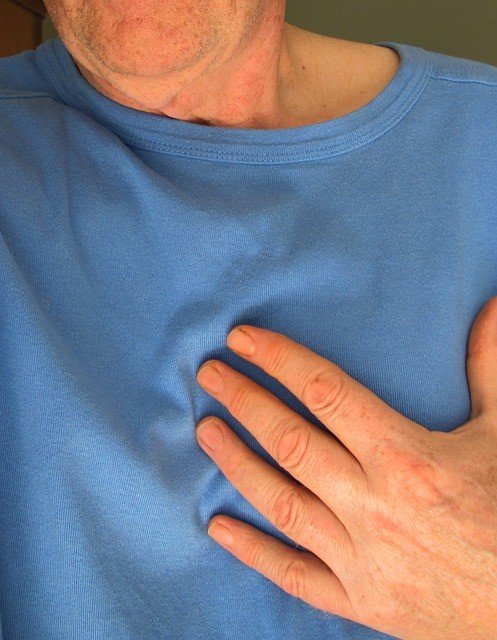Educating Steem: Should You Be Taking Low-Dose Aspirin?
It has been awhile since I have written a medical article, and I am glad to have extra-time this weekend to do so. I have just started my career as a resident family physician. The hours have been long, but the fist two-month experience has been well rewarding. Already, I have spent a month as a hospitalist, seen my own patients in the the family medicine clinic, and had the opportunity to work with surgeons. Family medicine emphasizes the importance of preventative medicine; I felt it was appropriate to bring the topic of daily-baby-aspirin use to the forefront.

Introduction:
To understand the importance aspirin could have on one’s health, let me bring to you the data! Yearly, 1.5 million Americans have an acute myocardial infarction (AKA heart attack), and of those people yearly, 500,000 will die from that event. Coronary artery disease is very prevalent with over 14 million Americans affected by it (1).
Colorectal cancer is another topic of great importance as it is the third most-common cancer, and the second most-deadly cancer in men (2). Aspirin has been shown to reduce both the incidence of heart attacks and colon cancer. Even the Preventative Task Force recommends its daily usage, which is significant because the Task Force is known for not recommending many preventative measures.
I will begin by explaining the physiologic mechanisms of how aspirin prevents heart attacks and then explain its role in preventing cancer. From there, I will go into some of the risks of taking daily-aspirin. Finally, I will cover the current recommendations for using aspirin for prevention so one can make an informed decision to either take it daily or not.
How Does Aspirin Reduce Heart Attacks and Cancer?:

I will simplify the mechanism of action so that one can understand why it helps prevent common causes of mortality. I always found it annoying to be told to do something because it is good for you, without actually understanding why it’s being done.
Many people get frustrated by taking medication and without a scientific understanding, they may fall victim to emotion over fact. In the face of countless studies, many will still refuse to believe them or believe it is a scam by “BIG PHARM". Some always feel that the “natural” way is the right way. That is one’s choice to live fully “natural,” but the average life expectancy was much lower in the past because there were not medications like antibiotics to save lives. That is fact. One can live off of emotion and “be in touch with his or her body” or can take certain things that will greatly improve their chances of living longer. I am not a physician who promotes taking unnecessary medication, but when it can save lives, I will of course, support it. Science does not stop at medicine. I am here to present the facts, and it will be up to the freedom of the reader to make those choices.
Aspirin irreversibly binds to platelets, rendering them useless until more are formed. It is irreversible, meaning once aspirin binds to platelets, they will be unable to aggregate permanently. More specifically, platelets are deactivated by its effect on acetylating COX-1. By deactivating COX-1, thromboxane A2 (an aggregate promoter) cannot be produced. Myocardial infarctions are often caused by “blood clots” so by reducing the ability for platelets to aggregate, blood clots form less (3). Platelets typically have a lifespan of 8-9 days. So the effects of aspirin will last for days. This is important in those who have a high risk of bleeding or have low platelets.
Now we see how aspirin prevents myocardial infarctions, but how about cancer?
Aspirin, like other non-steroid anti-inflammatory (NSAID) medications also inhibit prostaglandin synthesis. By blocking COX-1 and more often by COX-2, prostaglandin synthesis decreases. Prostaglandins are known to increase angiogenesis (increase vascular supply). Cancer, like any cell, thrives by receiving more blood. Increases in circulation to a tumor, would help that tumor thrive more. Prostaglandins also increase cell proliferation and decrease immune surveillance, which are both factors that can increase the chances of cancer. By decreasing prostaglandin synthesis, all these risks decrease. In addition, aspirin increases apoptosis, which causes programmed cell death for “faulty” cells. Cancer forms from a faulty cell that rapidly multiples. By increased apoptosis, these cells are more often killed before they have a chance to multiply.
What are the Disadvantages of Using Aspirin Daily?:

As mentioned above, aspirin will decrease platelet function for days so if someone has low platelets or has had a major bleeding event, this could be a dangerous combination. If someone has a greater chance of bleeding, then daily aspirin is likely not an appropriate option. I have written a previous article where I explain the harm of taking NSAIDS daily. Daily NSAIDs like Advil and Ibuprofen can cause many problems, including stomach ulcers and kidney disease. However, a low-dose aspirin does not effect the COX-1 and COX-2 portions as much, so this drug in low doses has more minimal to no effects on the kidneys. If someone has a history of stomach ulcers or another major bleed, this will not be an appropriate option. I will discuss these issues again at the end.
The Current Guidelines for Daily Aspirin Usage:

The guidelines differ depending on the organization and here is one example.
-The American College of Cardiology recommends those over the age of 50 with at least a 10-percent chance of cardiovascular disease (CVD) in 10-years who have a life expectance of at least 10-years (who have no major bleeding risks) should take a daily baby-aspirin (3). I know this one is a mouthful, and I could spend an entire post explaining how to decide ones 10-year risk. For simplicity, here is a link (4) to determine what your 10-year CVD risk is. If you have greater than a 10% chance once calculating this and are over 50-years-old, then this organization would recommend daily aspirin use (well, if there are no risk factors for a major bleed).
The Evidence for the Guidelines:

There are many studies, but I will just list a few here. Studies published in Ann Internal Med in June 2016 and Arch Intern Med in January 2012 were used to conduct multiple meta-analyses finding a 6% decrease in overall mortality with use of aspirin. A larger meta-analysis of 51 randomized controlled trials showed a decrease in overall mortality in the aspirin group by 8 percent (3).
Many of these studies have been summarized to include many other significant findings. While overall decreased-mortality was found, it was more impressive to note that daily aspirin decreased myocardial infarctions by 22%. Chances of getting colorectal cancer decreased by 24% in the aspirin group over a 20-year follow-up period (3). Without looking too far, it is quite easy to see the benefit aspirin has had in saving lives.
My Conclusions/Recommendations:

The evidence is clear—aspirin saves lives! However, I would be very cautious in its use for certain patients. If someone has a history of peptic ulcer disease or any significant bleed (GI, brain, or from fracture/fall) I would not recommend it because the risk of dying from bleeding would be higher. Although in theory, a higher dose aspirin could affect the kidney, there has been no significant data showing that a baby-aspirin truly lowers kidney function. Again, a baby-aspirin does not affect the kidneys like other NSAIDS.
I would recommend a low-dose aspirin (75-100mg) daily for any person over the age of 50 who has no significant risk factors for bleeding or any allergy to the medication and has a CVD risk of 10% or greater. If your CVD risk factor is significantly high in 10-years (see the link above to calculate) then I would STRONGLY recommend it. Speak with your doctor to get a further understanding of the benefits and risks.
When should you stop taking it? If someone has adverse effects or a major bleed, stop taking it. If one will not live longer than 10-years, there is not much use to start this preventative measure. For instance, if a 95-year-old wanted to start taking an aspirin, I would likely not recommend it.
I hope everyone enjoyed this article!
Feel free to follow me for more posts on music/health/science/travel/and more.
Have a great weekend!

Sources:
1) http://emedicine.medscape.com/article/153647-overview#a2
2) http://emedicine.medscape.com/article/277496-overview#a6
4) http://www.medcalc.com/heartrisk.html
Images: Taken from pixabay.com and links are provided. These images are public domain and no sources are needed.
*edit: removed the first guideline by the task force due to the data being outdated.
Nice material. What is a hospitalist?
Thanks for reading. A hospitalist is the doc that does the main care in the hospital. Internal medicine or family medicine generally does this within the hospital.
I have learned a few things here, thanks! I bookmarked the heart risk calculator and score under 10% but still plan on talking to my doc about this, next checkup.
I learned a lot, thanks!
It is a great tool. I think if you are under the 10% then you are fine. If you are over 50 years old then it is something to consider because you do reduce your chances of colon cancer. Thanks for reading man!
I wish they would be more like you. But I think I have already told you that long ago.
I was wondering about whether there was any risk in developing resistance to aspirin? I have never heard anything about that but this may sound logical if one over-uses it.
I think tolerance may develop in long term use, we say resistance mainly for the antibiotics and other antimicrobial.... but just found an article on aspirin resistance....https://www.ncbi.nlm.nih.gov/pubmed/17241655
Thanks for providing this link. I will have to investigate this further. I am already anticipating that this has not been studied well enough to make a recommendation on whether resistance is significant or not. Thanks for the research.
Thanks for the link! I have answered below :)
Thank you for the support over the past year! I thought that part needed to be said, and I unfortunately believe that emotional debates will continue over what more of the evidence is showing.
This is a good question. I did look over the study below. I, overall, think there is some resistance but some of these studies are often over a 20-year follow up period. There is still clear benefit, but you raise a good point that if we investigate resistance, we may be able to decrease the number needed to treat for a positive outcome. I will have to look for into that.
I am happy to have provided some food for thoughts :) Unfortunately, I don't have access to the article. I am at the moment traveling and my Elsevier credentials are based on my institutional IP address :/
Anyhow, I think (okay I read the abstract), it is a matter of finding the right dose. And this dose may need to be tuned so that the possible resistance that cold arise is minimized.
Sounds about right. What we do know--resistance or not--is there is still benefit at the current lower dose. I did make an edit to my article. The one guideline by the US Preventative Task Force also recommends starting aspirin at 50 (not in the 40s). Already made that change. The older recommendation had the age range from 45 years. One source I found said 40 years, but I believe it was a "typo" and outdated.
Thanks for the update! :)
Thanks for explaining all this. I only take an aspirin when I remember about it so thanks for reminding us about the benefits.
No problem. I hope it was helpful and I'm glad it was a good reminder!
Join us on #steemSTEM / Follow our curation trail on Streemian
Thank you for this very interesting article. It has been advertised on our chat channel (and upvoted).
The steemSTEM project is a community-supported project aiming to increase the quality and the visibility of STEM (STEM is the acronym for Science, Technology, Engineering and Mathematics) articles on Steemit.
Thank you Steem Stem! Awesome. Greatly appreciated. Thanks for taking the time to read and to help promote the article. You guys are doing some great work. Cheers.
why low dose?
I've been taking a couple (or more) adult aspirin daily for pain (achey joints) for YEARs.
Good question. Low dose would have more minimal effects on bleeding risk and ulcer/kidney problems while still providing cardiovascular benefits. You would for sure gain the benefits of reducing your chances of cardiovascular/colon cancer risk. I would just advise you to make sure your kidney function is good. If your kidneys are okay and you have had no major bleeding problems, then the high dose you have been taking for years should be okay.
Garlic will do the same job, only better - have a look into 'kyolic aged garlic extract high potency'
Will look into this. Thanks for reading.
hey doctor :D it was nice one <3 glad your starting 2 months was gladed :)
It has been a journey! Just glad to have started. Thanks for reading.
Fascinating post Dr @tfeldman , I congratulate you, thank you for sharing it
Thanks for reading. Hope it was useful!
tks for this information!!
Thanks for taking the time to read. Hope it was helpful.